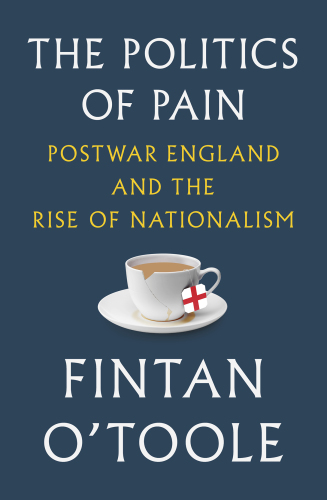
The Politics of Pain
Postwar England and the Rise of Nationalism
کتاب های مرتبط
- اطلاعات
- نقد و بررسی
- دیدگاه کاربران
نقد و بررسی

October 1, 2019
An award-winning British journalist offers a straightforward view of the rise of English nationalism since World War II. While Britain shared in the war victory and avoided becoming Germany's colony, it lost an empire.Meanwhile, former Axis powers and the countries that had been invaded were thriving. All those countries moved on after WWII, but England never did, writes O'Toole (Judging Shaw: The Radicalism of GBS, 2017, etc.), a winner of the Orwell Prize and the European Press Prize. The desperate fear of Europeanization and loss of Englishness called for "Empire 2.0," built on an Anglosphere incorporating Australia, New Zealand, Canada, and the Caribbean. As the concept of political correctness took over, a new scapegoat presented itself in the form of the EU. The threats posed to national health and public housing were invented, causing unreasoned yet omnipresent fear and encouraging vociferous nationalism, which eventually led to the Brexit decision. The grievances it was supposed to address never existed. "The great upheaval of 2016 was never really about Europe," writes the author. "Those who have caused it turned out to have very little interest in...the EU itself....They had no plan for how the UK would relate to the EU after Brexit, largely because that relationship was not the real focus of their obsessions. They were concerned...with Britain's relationship to itself and its own self-image. Their desire was to exit a condition of ordinariness which, they had succeeded in convincing themselves, is an unnatural and oppressive imposition on an extraordinary country." As the author shows, Brexit trivializes the serious and takes the trivial seriously. Brexiteers Nigel Farage and Boris Johnson spout lies and invent enemies and insults, which leads to chaos and long-lasting consequences. "Whatever happens with Brexit," writes O'Toole in this deft assessment, "this toxic sludge will be in England's political groundwater for a long time." A solid combination of candor, clever turns of phrase, and clear insight into the English psyche.
COPYRIGHT(2019) Kirkus Reviews, ALL RIGHTS RESERVED.

October 25, 2019
How did the UK end up in the mess that is Brexit? Political and cultural commentator O'Toole's analysis posits a mentality particular to England as the culprit--a mind-set addicted to the glories of empire and victory that also revels in stiff-upper-lip failures (the charge of the Light Brigade; the retreat from Dunkirk), while secretly longing for a foreign invasion to jolt the country into action. Absent a hostile force, immigrants and EU regulations supposedly hell-bent on banning crisps will do. Though this portrait is exaggerated, it reveals a wounded country willing to inflict more suffering on itself as long as it can do so in a manner that feeds its pride. But as amusingly drawn as O'Toole's pointed evaluation is, there's little examination of the complexities of the Britain-EU relationship. Aside from offering some small acknowledgement of EU missteps, O'Toole is more interested in carving up Boris Johnson and Jacob Rees-Mogg than engaging with complaints of Leave voters in England and the wider UK. VERDICT A harsh and thorough skewering of the worst parts of English nationalism, though the narrative's narrow focus undercuts its potential to be more than a caustic takedown of the country's self-image.--Kathleen McCallister, William & Mary Libs., Williamsburg, VA
Copyright 2019 Library Journal, LLC Used with permission.

























دیدگاه کاربران